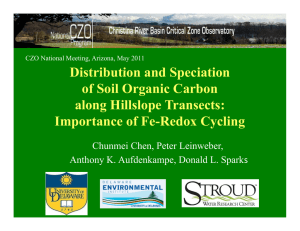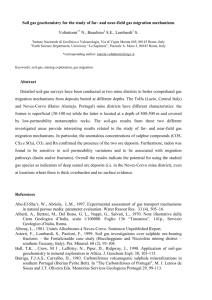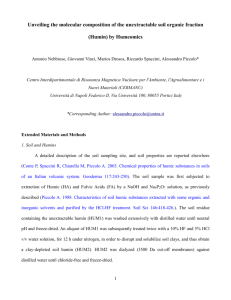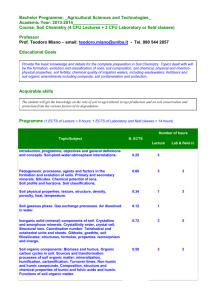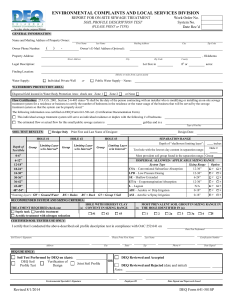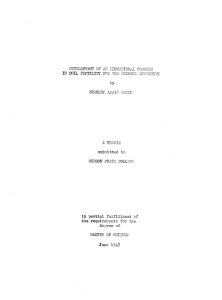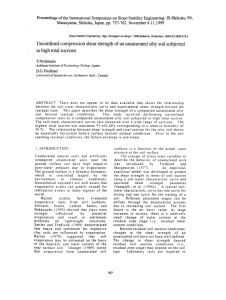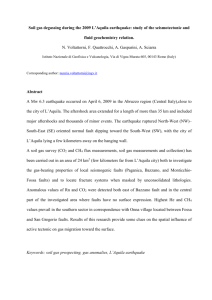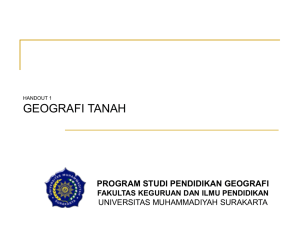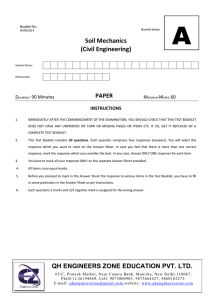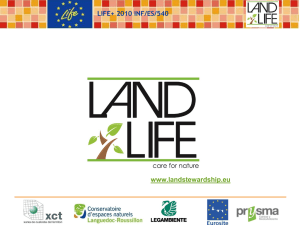EGU2014-7258 - CO Meeting Organizer
advertisement
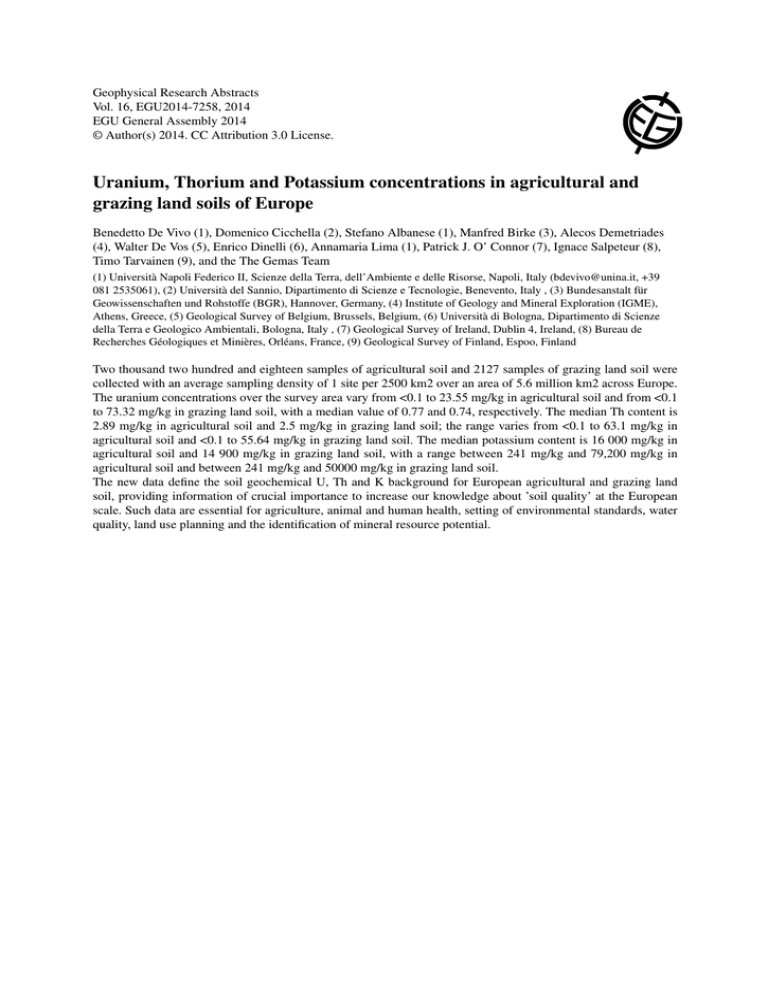
Geophysical Research Abstracts Vol. 16, EGU2014-7258, 2014 EGU General Assembly 2014 © Author(s) 2014. CC Attribution 3.0 License. Uranium, Thorium and Potassium concentrations in agricultural and grazing land soils of Europe Benedetto De Vivo (1), Domenico Cicchella (2), Stefano Albanese (1), Manfred Birke (3), Alecos Demetriades (4), Walter De Vos (5), Enrico Dinelli (6), Annamaria Lima (1), Patrick J. O’ Connor (7), Ignace Salpeteur (8), Timo Tarvainen (9), and the The Gemas Team (1) Università Napoli Federico II, Scienze della Terra, dell’Ambiente e delle Risorse, Napoli, Italy (bdevivo@unina.it, +39 081 2535061), (2) Università del Sannio, Dipartimento di Scienze e Tecnologie, Benevento, Italy , (3) Bundesanstalt für Geowissenschaften und Rohstoffe (BGR), Hannover, Germany, (4) Institute of Geology and Mineral Exploration (IGME), Athens, Greece, (5) Geological Survey of Belgium, Brussels, Belgium, (6) Università di Bologna, Dipartimento di Scienze della Terra e Geologico Ambientali, Bologna, Italy , (7) Geological Survey of Ireland, Dublin 4, Ireland, (8) Bureau de Recherches Géologiques et Minières, Orléans, France, (9) Geological Survey of Finland, Espoo, Finland Two thousand two hundred and eighteen samples of agricultural soil and 2127 samples of grazing land soil were collected with an average sampling density of 1 site per 2500 km2 over an area of 5.6 million km2 across Europe. The uranium concentrations over the survey area vary from <0.1 to 23.55 mg/kg in agricultural soil and from <0.1 to 73.32 mg/kg in grazing land soil, with a median value of 0.77 and 0.74, respectively. The median Th content is 2.89 mg/kg in agricultural soil and 2.5 mg/kg in grazing land soil; the range varies from <0.1 to 63.1 mg/kg in agricultural soil and <0.1 to 55.64 mg/kg in grazing land soil. The median potassium content is 16 000 mg/kg in agricultural soil and 14 900 mg/kg in grazing land soil, with a range between 241 mg/kg and 79,200 mg/kg in agricultural soil and between 241 mg/kg and 50000 mg/kg in grazing land soil. The new data define the soil geochemical U, Th and K background for European agricultural and grazing land soil, providing information of crucial importance to increase our knowledge about ’soil quality’ at the European scale. Such data are essential for agriculture, animal and human health, setting of environmental standards, water quality, land use planning and the identification of mineral resource potential.
